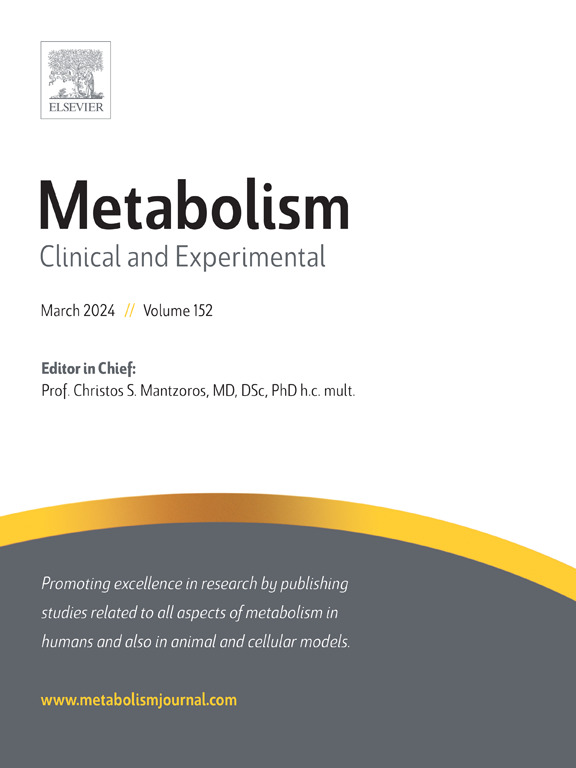Metabolic regulation of tissue-resident immune cells: Molecular mechanisms and therapeutic implications
IF 11.9
1区 医学
Q1 ENDOCRINOLOGY & METABOLISM
引用次数: 0
Abstract
Many innate and adaptive immune cells are resident in non-lymphoid tissues and do not participate in peripheral circulation. These tissue-resident immune cells not only rapidly recognize and respond to local infections or injuries but also contribute to the maintenance of tissue homeostasis and immune balance. Immune cell function is closely associated with their metabolic state. Recent studies reveal that tissue-resident immune cells undergo unique metabolic reprogramming to adapt to their specific tissue microenvironment. This metabolic adaptation is crucial for their long-term survival, differentiation, and function. In this review, we systematically elaborate on the metabolic characteristics and tissue-specific regulatory mechanisms of CD8+ tissue-resident memory T cells (TRM) and tissue-resident macrophages (TRMφs). Based on an in-depth analysis of the critical role of immunometabolic pathways in infection, cancer, and autoimmune diseases, we further summarize therapeutic strategies targeting these metabolic pathways and discuss their efficacy, potential side effects, and the challenges facing clinical translation.

组织驻留免疫细胞的代谢调节:分子机制和治疗意义
许多先天和适应性免疫细胞驻留在非淋巴组织中,不参与外周循环。这些组织驻留免疫细胞不仅能快速识别和响应局部感染或损伤,而且有助于维持组织稳态和免疫平衡。免疫细胞的功能与其代谢状态密切相关。最近的研究表明,组织驻留免疫细胞通过独特的代谢重编程来适应其特定的组织微环境。这种代谢适应对它们的长期生存、分化和功能至关重要。在这篇综述中,我们系统地阐述了CD8+组织驻留记忆T细胞(TRM)和组织驻留巨噬细胞(TRMφs)的代谢特性和组织特异性调节机制。在深入分析免疫代谢途径在感染、癌症和自身免疫性疾病中的关键作用的基础上,我们进一步总结了针对这些代谢途径的治疗策略,并讨论了它们的疗效、潜在的副作用以及临床转化面临的挑战。
本文章由计算机程序翻译,如有差异,请以英文原文为准。
求助全文
约1分钟内获得全文
求助全文
来源期刊

Metabolism: clinical and experimental
医学-内分泌学与代谢
CiteScore
18.90
自引率
3.10%
发文量
310
审稿时长
16 days
期刊介绍:
Metabolism upholds research excellence by disseminating high-quality original research, reviews, editorials, and commentaries covering all facets of human metabolism.
Consideration for publication in Metabolism extends to studies in humans, animal, and cellular models, with a particular emphasis on work demonstrating strong translational potential.
The journal addresses a range of topics, including:
- Energy Expenditure and Obesity
- Metabolic Syndrome, Prediabetes, and Diabetes
- Nutrition, Exercise, and the Environment
- Genetics and Genomics, Proteomics, and Metabolomics
- Carbohydrate, Lipid, and Protein Metabolism
- Endocrinology and Hypertension
- Mineral and Bone Metabolism
- Cardiovascular Diseases and Malignancies
- Inflammation in metabolism and immunometabolism
 求助内容:
求助内容: 应助结果提醒方式:
应助结果提醒方式:


